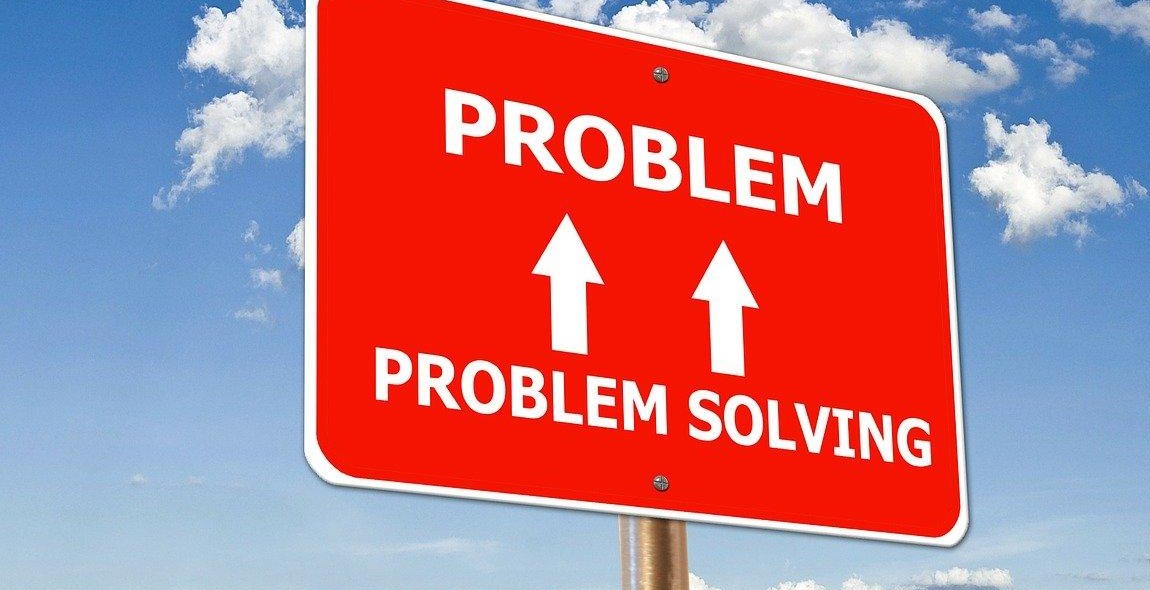How to Develop Effective Problem-Solving Skills in the Workplace
Problem-solving is an essential skill for any employee, regardless of their position or industry. In the workplace, problem-solving skills allow individuals to identify, analyze, and solve complex issues that arise on a daily basis. Effective problem-solving skills can help employees become more productive, efficient, and valuable team members.
The Importance of Problem-Solving Skills in the Workplace
Employers value problem-solving skills because they enable their employees to think critically and make sound decisions. In today’s fast-paced and constantly changing business environment, employees who can quickly identify and solve problems are highly sought after.
Problem-solving skills are also important for employees who work in teams. When a problem arises, team members can work together to identify the root cause and develop a solution that works for everyone. This collaborative approach not only solves the immediate problem but also strengthens the team’s ability to work together effectively in the future.
Developing Effective Problem-Solving Skills
Effective problem-solving skills can be developed through a combination of training, experience, and practice. Employers can provide training and resources to help their employees develop these skills, such as workshops, online courses, and mentorship programs.
Employees can also develop their problem-solving skills through experience. When faced with a problem, they can take a step back, analyze the situation, and develop a plan of action. Over time, employees will become more confident in their problem-solving abilities and will be able to tackle more complex issues.
Practice is also essential for developing effective problem-solving skills. Employees can practice by working on hypothetical scenarios, participating in brainstorming sessions, and seeking feedback from colleagues.

Why are Effective Problem-Solving Skills Important in the Workplace?
Effective problem-solving skills are essential in the workplace for several reasons. They help to improve productivity, enhance decision-making capabilities, and increase job satisfaction. Let’s take a closer look at each of these benefits.
Improved Productivity
Employees who possess strong problem-solving skills are better equipped to handle challenging situations and find solutions quickly. This means that they are less likely to get stuck on a problem, which can lead to delays in completing tasks or projects. By being able to identify and solve problems efficiently, employees can improve their productivity and overall performance.
Better Decision-making
Effective problem-solving skills also enable employees to make better decisions. When faced with a problem, they can analyze the situation, identify the root cause, and develop a solution that addresses the issue. This process helps employees to make informed decisions based on facts and data, rather than relying on intuition or guesswork. By making better decisions, employees can avoid costly mistakes and achieve better outcomes.
Increased Job Satisfaction
Employees who are skilled problem solvers are often more satisfied with their jobs. This is because they feel more confident in their abilities to handle challenges and contribute to the success of their team and organization. When employees are able to solve problems effectively, they feel a sense of accomplishment and fulfillment that can boost their morale and motivation.
In conclusion, effective problem-solving skills are critical to success in the workplace. They can improve productivity, enhance decision-making capabilities, and increase job satisfaction. By developing and honing these skills, employees can become valuable assets to their organizations and achieve greater success in their careers.

Steps to develop effective problem-solving skills in the workplace
Effective problem-solving skills are essential in the workplace. They help individuals and teams to identify, analyze, and resolve issues that may arise during work processes and projects. Here are the steps to develop effective problem-solving skills in the workplace:
1. Define the problem
The first step in problem-solving is to define the problem. This involves identifying the issue at hand, understanding its nature, and determining its scope. It is important to be specific and clear about the problem to avoid confusion and miscommunication.
2. Gather information
Once the problem has been defined, the next step is to gather information. This involves collecting data, facts, and opinions related to the problem. It is important to gather information from reliable sources and to ensure that the information is accurate and relevant.
3. Generate possible solutions
After gathering information, the next step is to generate possible solutions. This involves brainstorming and coming up with ideas that could potentially solve the problem. It is important to consider different perspectives and to be creative in generating solutions.
4. Choose the best solution
Once possible solutions have been generated, the next step is to evaluate them and choose the best one. This involves analyzing the pros and cons of each solution and selecting the one that is most feasible and effective.
5. Implement the solution
After choosing the best solution, the next step is to implement it. This involves putting the plan into action and ensuring that all relevant parties are informed and involved in the implementation process.
6. Evaluate the results
Once the solution has been implemented, the final step is to evaluate the results. This involves assessing whether the solution was effective in solving the problem and identifying any areas for improvement. It is important to learn from the experience and to use the knowledge gained to improve problem-solving skills in the future.
| Step | Description |
|---|---|
| 1 | Define the problem |
| 2 | Gather information |
| 3 | Generate possible solutions |
| 4 | Choose the best solution |
| 5 | Implement the solution |
| 6 | Evaluate the results |
Developing effective problem-solving skills takes time and practice. By following these steps, individuals and teams can improve their problem-solving abilities and become more efficient and effective in the workplace.

Tips for Improving Problem-Solving Skills
Problem-solving is an essential skill in the workplace, and it can be developed and improved over time. Here are some tips to help you improve your problem-solving skills:
1. Practice Active Listening
Active listening is the art of paying attention to what someone is saying and understanding their perspective. It is essential in problem-solving because it helps you understand the problem from different angles and find the best solution. When someone is talking to you, focus on what they are saying and ask questions to clarify their point of view. Avoid interrupting them and try to put yourself in their shoes to understand their perspective better.
2. Encourage Collaboration
Collaboration is key to effective problem-solving. When you work with others, you can combine your strengths and expertise to find the best solution. Encourage collaboration by involving others in the problem-solving process and valuing their input. Be open to different ideas and perspectives, and work together to find the best solution.
3. Embrace Creativity
Problem-solving often requires thinking outside of the box and coming up with creative solutions. Embrace your creativity and encourage others to do the same. Brainstorm different ideas and solutions, even if they seem unconventional. Sometimes the best solutions come from thinking outside of the box.
4. Stay Organized
Staying organized is essential to effective problem-solving. Keep track of the problem you are trying to solve, the solutions you have tried, and any other relevant information. This will help you stay focused and avoid getting sidetracked. Use tools like to-do lists, calendars, and project management software to stay on top of your tasks and responsibilities.
5. Be Open to Feedback
Feedback is essential to improving your problem-solving skills. Be open to feedback from others and use it to improve your approach. Ask for feedback on your problem-solving process, the solutions you have proposed, and your communication skills. Use this feedback to make adjustments and improve your problem-solving skills over time.
By following these tips, you can improve your problem-solving skills and become a more effective problem solver in the workplace.

Conclusion
Effective problem-solving skills are essential in any workplace. Developing these skills takes time and effort, but the benefits are well worth it. By following the steps outlined in this article, you can improve your problem-solving abilities and become a valuable asset to your organization.
Remember that effective problem-solving involves identifying the root cause of the issue, gathering information, analyzing the data, and developing a solution. It’s also essential to communicate effectively with your colleagues and stakeholders throughout the process.
One key takeaway is that problem-solving is not a one-time event. It’s an ongoing process that requires continual improvement and refinement. By regularly reflecting on your problem-solving skills and seeking feedback from others, you can continue to grow and develop in this area.
Finally, it’s important to recognize that problem-solving is not always easy. It can be frustrating and challenging at times, but with persistence and a positive attitude, you can overcome any obstacle.
So, take the time to develop your problem-solving skills, and watch as your career and organization thrive.
